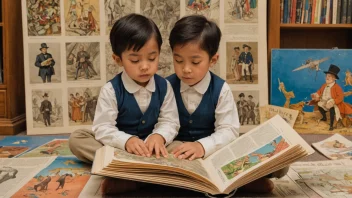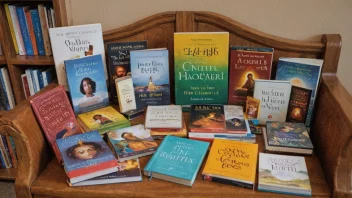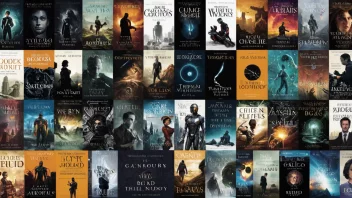Fiction has long been regarded as a mirror reflecting society's values, ideals, and struggles. Throughout history, literature has documented the zeitgeist of its time, capturing the essence of human experience and societal evolution. In the modern era, fiction continues to play an essential role in shaping cultural narratives and challenging the status quo, offering readers a lens through which to examine their own lives and communities.
One of the most powerful aspects of fiction is its ability to create empathy. By immersing readers in diverse perspectives and experiences, fiction allows individuals to step outside their own reality and engage with the lives of others. This is particularly important in today’s increasingly polarized society, where understanding different viewpoints can seem daunting. Works like 'The Kite Runner' by Khaled Hosseini and 'The Underground Railroad' by Colson Whitehead provide intimate portrayals of trauma, resilience, and redemption, inviting readers to empathize with characters whose lives may be vastly different from their own. Through these narratives, fiction fosters a deeper understanding of the human experience, bridging cultural divides and promoting compassion.
Furthermore, fiction serves as a platform for social critique, addressing pressing issues such as inequality, discrimination, and environmental degradation. Authors often use their narratives to challenge prevailing norms and provoke critical thought. For example, novels like 'Little Fires Everywhere' by Celeste Ng explore themes of privilege and motherhood, prompting readers to reflect on their own biases and assumptions. Similarly, 'The Overstory' by Richard Powers tackles environmental issues and the interconnectedness of life, urging readers to consider their relationship with nature. By confronting uncomfortable truths, fiction encourages readers to engage in meaningful conversations about social change.
In addition to providing social commentary, fiction also preserves cultural heritage and history. Many contemporary authors draw upon their own backgrounds to create narratives that honor their ancestry and traditions. Books like 'Homegoing' by Yaa Gyasi and 'Pachinko' by Min Jin Lee delve into the complexities of identity, migration, and familial legacy, allowing readers to explore the impact of history on the present. These stories serve as a reminder of the importance of cultural memory, illustrating how the past continues to shape our identities and communities.
Moreover, the evolution of genres within fiction reflects changing societal values and interests. The rise of speculative fiction, for instance, has become increasingly relevant in a world grappling with issues like climate change and technological advancements. Authors like Margaret Atwood and Neil Gaiman use speculative elements to explore the consequences of human actions, prompting readers to envision potential futures. This genre not only entertains but also serves as a cautionary tale, urging readers to reflect on their responsibilities toward the planet and future generations.
In conclusion, fiction remains a vital force in shaping and reflecting modern culture. It offers a rich tapestry of narratives that challenge readers to engage with diverse perspectives, confront societal issues, and explore their own identities. As a mirror of our values, fiction invites us to examine the complexities of the human experience, fostering empathy, understanding, and ultimately, a deeper connection to one another. Through the power of storytelling, we are reminded that literature is not just a reflection of society but a catalyst for change, inspiring us to envision a more compassionate and just world.
Fiction as a Mirror of Society’s Values
Exploring how fiction reflects and shapes society's values, ideals, and struggles.






